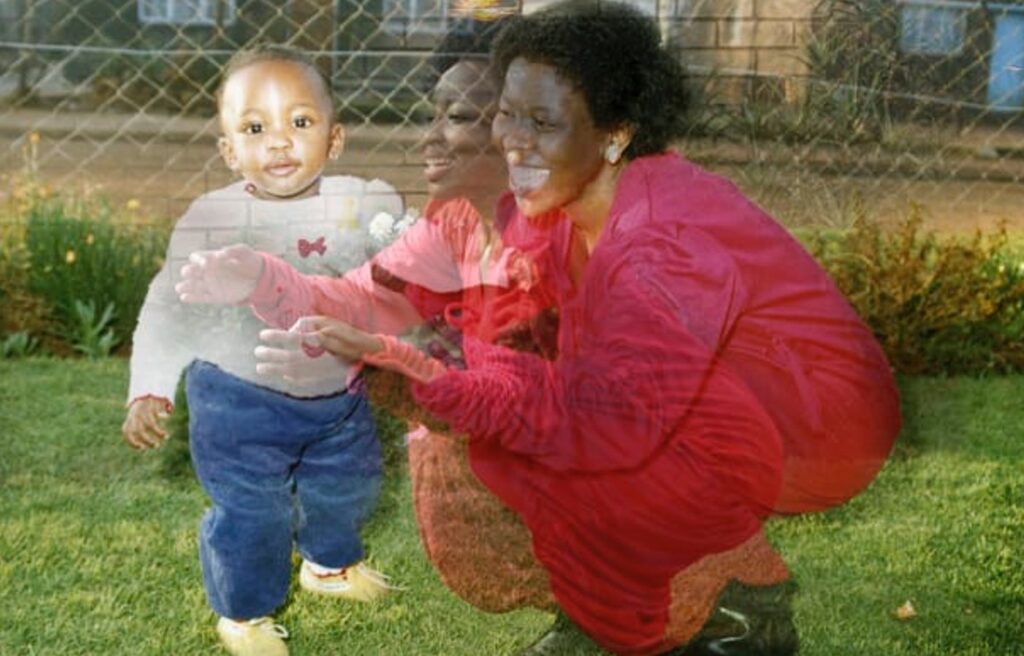Rosegallery, Santa Monica, United States
22 Feb 2022 - 09 Apr 2022

SETSHWANTSO LE NGWANAKA II, FROM THE SERIES KE LEFA LAKA (HER-STORY), 2013
ROSEGALLERY presents its upcoming exhibition: What Are You Leaving Behind? by visual artist Lebohang Kganye. Kganye’s work is centered around personal and familial history.
Kganye often incorporates the archival and performative into a practice that centers storytelling and memory as it plays itself out in the familial experience. Her work explores an archive that is concerned with layered and temporal storytelling. The pieces in the forthcoming show span eight years of Kganye’s career, weaving together three seminal series: Her Story (2013), Reconstruction of a Family (2016), and Tell Tale (2018). In What Are You Leaving Behind? viewers are invited to follow the artist’s conceptual journey as she ruminates on the relationship between history and orature, and memory and fantasy throughout nearly a decade of work.
Her series Ke Lefa Laka (Her-story) stems from confronting grief from the loss of her mother, while maintaining a connection to her and generational history. The title translates to it’s my legacy in seSotho. Kganye explains, “That work just came on its own, somehow it gave birth to itself through me. »
In Reconstruction of a Family, Kganye documents her personal history and straddles generations of her mother’s family. It also resonates the history of South Africa, in that the artist’s family was uprooted and resettled because of the Land Act (and its various amendments) and other apartheid laws. These stories reflect her family moving from place to place during the apartheid era and finding refuge in different spaces around the country, and then creating temporary homes in those spaces. And finally, the series Tell Tale confronts the conflicting stories, which are told in multiple ways, even by the same person – a combination of memory and fantasy.
Tell Tale…does not attest to being a documentation of a people but presents their personal narratives…which hearken back to a particular time but are also vehicles to a fantasy that allows for a momentary space to ‘perform’ the ideals of a community. – Lebohang Kganye, Tell Tale
The work does not attest to being a documentation of a people but presents their personal narratives, which they share over a cup of tea, homemade ginger ale or the locally brewed beer. These prized possessions hearken back to a particular time but are also vehicles to a fantasy that allows for a momentary space to perform ideals of community. Fictive narratives depend on oral histories, genealogist Kimberley Powell states, “Oral histories are stories told by living people about the past. Generally, these are stories of their own life and the life’s of the people around them. Often an oral history includes details and stories that exist nowhere other than in the individual’s mind.”